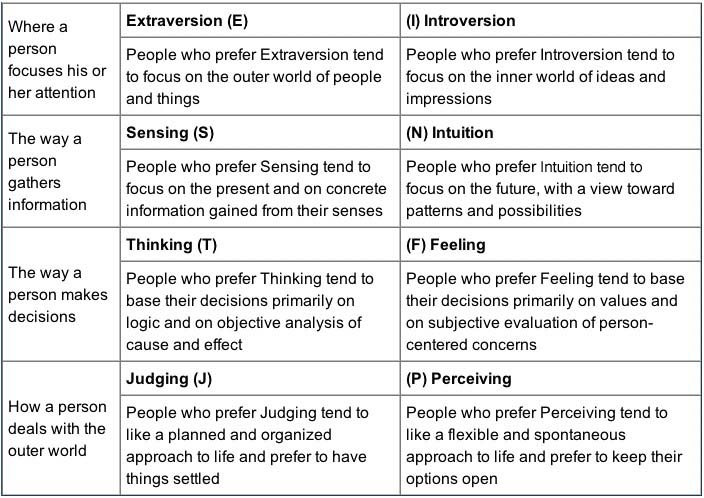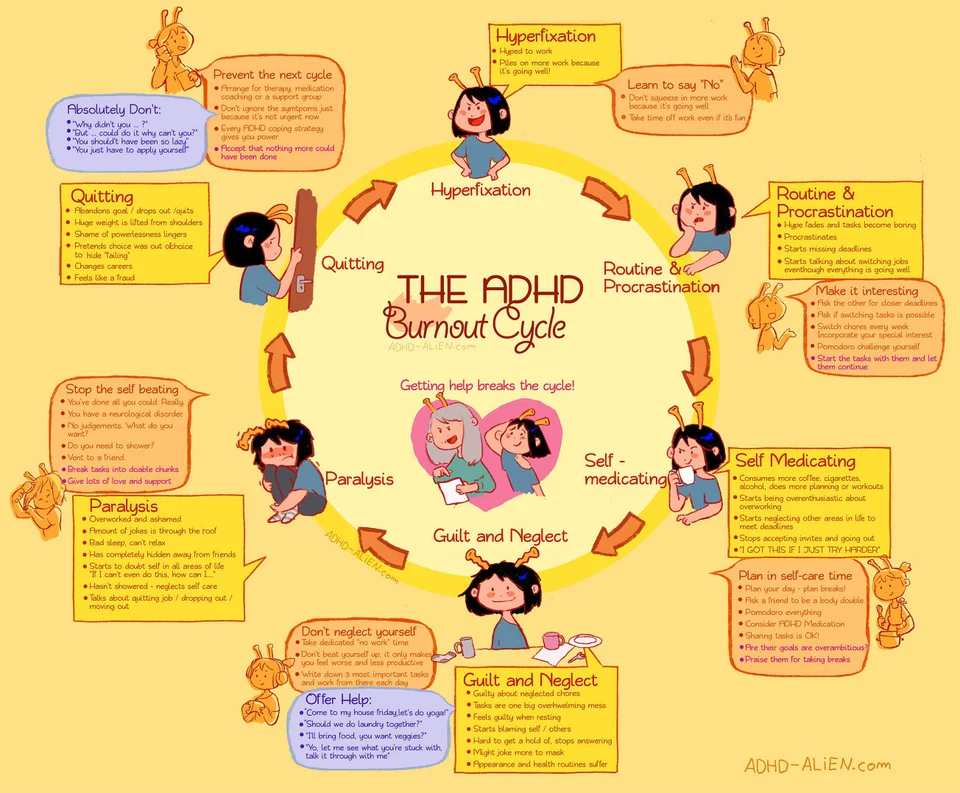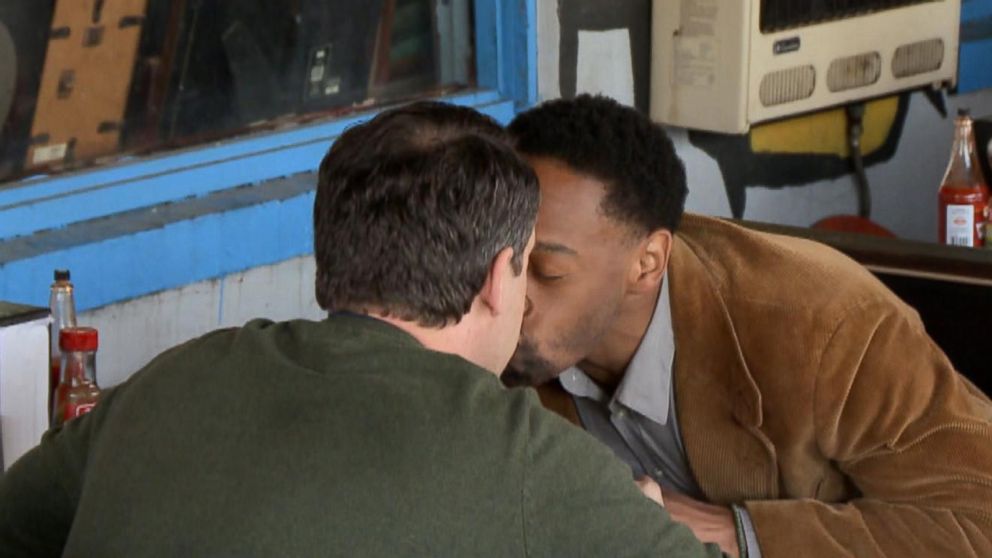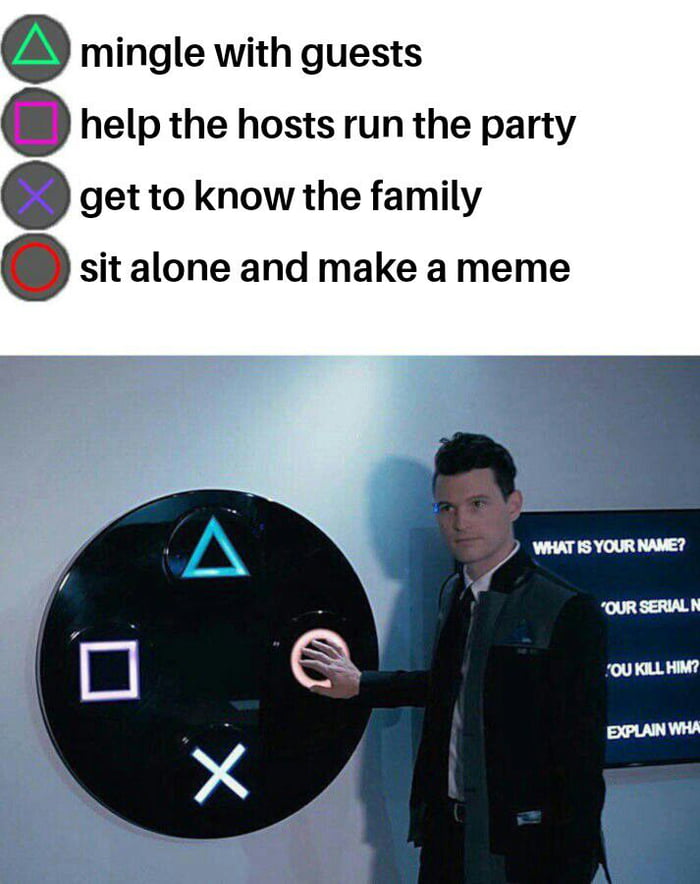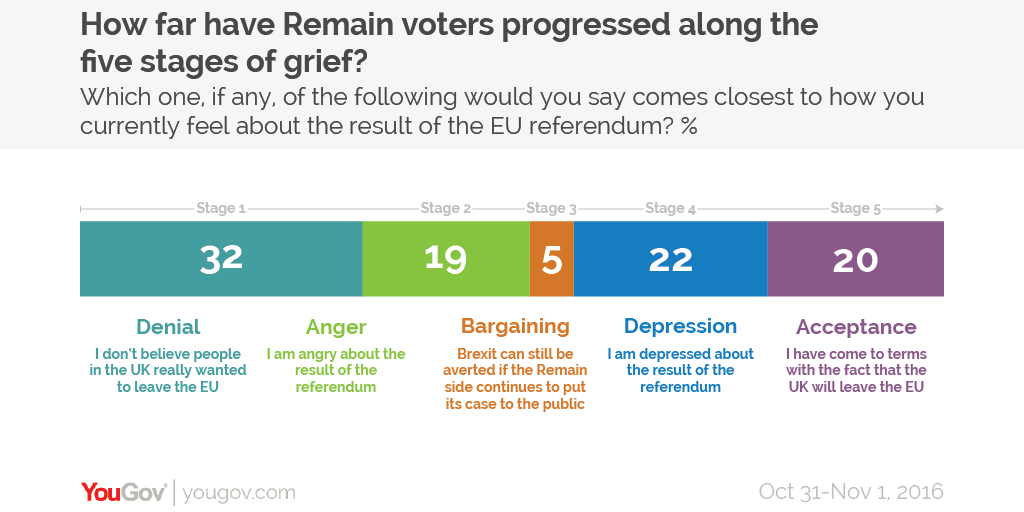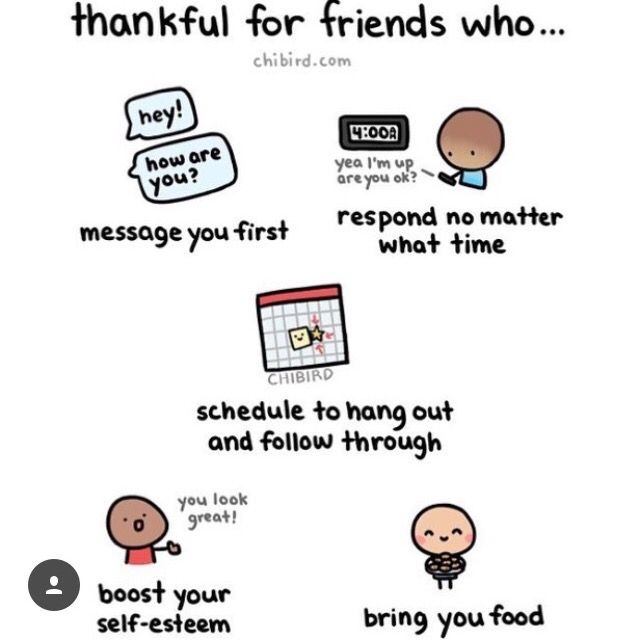Abusive relationships how to get out
How to Get Out of an Abusive Relationship
domestic abuse
Getting out of an abusive relationship isn't easy, but you deserve to live free of fear. Here’s how to find help for abused and battered women.
If you're in an abusive relationship
Why doesn't she just leave? It's the question many people ask when they learn that a woman is suffering battery and abuse. But if you are in an abusive relationship, you know that it's not that simple. Ending a significant relationship is never easy. It's even harder when you've been isolated from your family and friends, psychologically beaten down, financially controlled, and physically threatened.
If you’re trying to decide whether to stay or leave, you may be feeling confused, uncertain, frightened, and torn. Maybe you’re still hoping that your situation will change or you’re afraid of how your partner will react if he discovers that you’re trying to leave. One moment, you may desperately want to get away, and the next, you may want to hang on to the relationship.
Maybe you even blame yourself for the abuse or feel weak and embarrassed because you’ve stuck around in spite of it. Don’t be trapped by confusion, guilt, or self-blame. The only thing that matters is your safety.
If you are being abused, remember:
- You are not to blame for being battered or mistreated.
- You are not the cause of your partner's abusive behavior.
- You deserve to be treated with respect.
- You deserve a safe and happy life.
- Your children deserve a safe and happy life.
- You are not alone. There are people waiting to help.
There are many resources available for abused and battered women, including crisis hotlines, shelters—even job training, legal services, and childcare. Start by reaching out today.
If you need immediate assistance, call your country's emergency services number (911 in the U.S.)
For domestic violence helplines and shelters, click here.
If you're a man in an abusive relationship, read Help for Men Who are Being Abused.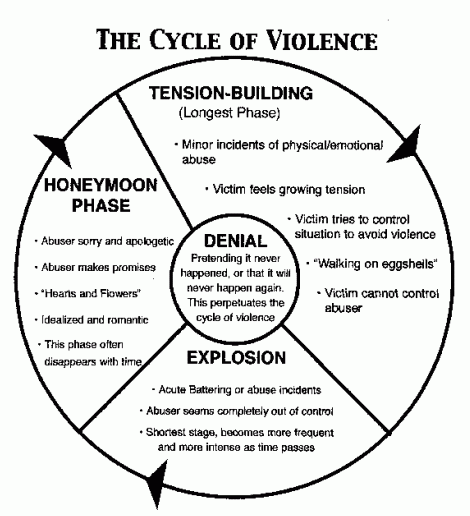
Making the decision to leave an abusive relationship
As you face the decision to either end the abusive relationship or try to save it, keep the following things in mind:
If you're hoping your abusive partner will change… The abuse will probably keep happening. Abusers have deep emotional and psychological problems. While change is not impossible, it isn't quick or easy. And change can only happen once your abuser takes full responsibility for his behavior, seeks professional treatment, and stops blaming you, his unhappy childhood, stress, work, his drinking, or his temper.
If you believe you can help your abuser… It's only natural that you want to help your partner. You may think you're the only one who understands him or that it's your responsibility to fix his problems. But the truth is that by staying and accepting repeated abuse, you're reinforcing and enabling the behavior. Instead of helping your abuser, you're perpetuating the problem.
If your partner has promised to stop the abuse… When facing consequences, abusers often plead for another chance, beg for forgiveness, and promise to change. They may even mean what they say in the moment, but their true goal is to stay in control and keep you from leaving. Most of the time, they quickly return to their abusive behavior once you've forgiven them and they're no longer worried that you'll leave.
If your partner is in counseling or a program for batterers… Even if your partner is in counseling, there is no guarantee that he'll change. Many abusers who go through counseling continue to be violent, abusive, and controlling. If your partner has stopped minimizing the problem or making excuses, that's a good sign. But you still need to make your decision based on who he is now, not the man you hope he will become.
If you're worried about what will happen if you leave… You may be afraid of what your abusive partner will do, where you'll go, or how you'll support yourself or your children.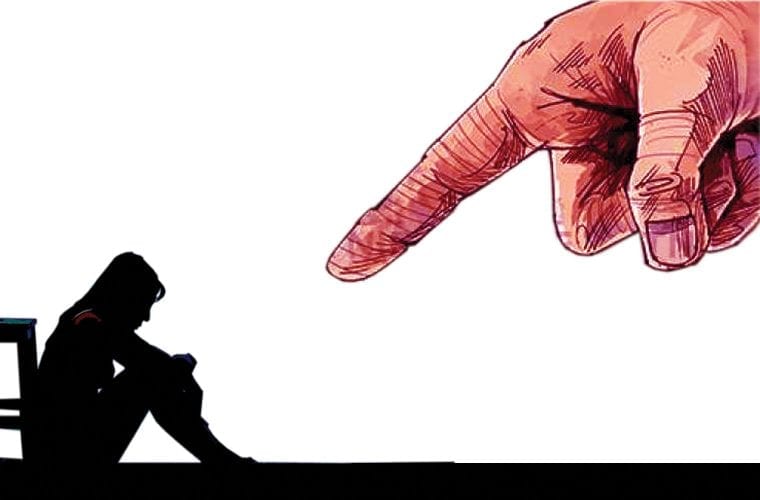 But don't let fear of the unknown keep you in a dangerous, unhealthy situation.
But don't let fear of the unknown keep you in a dangerous, unhealthy situation.
Safety planning for abused women
Whether or not you're ready to leave your abuser, there are steps you can take to protect yourself. These safety tips may might the difference between being severely injured or killed and escaping with your life.
Know your abuser's red flags. Stay alert for signs and clues that your abuser is getting upset and may explode in anger or violence. Come up with several believable reasons you can use to leave the house (both during the day and at night) if you sense trouble brewing.
Identify safe areas of the house. Know where to go if your abuser attacks or an argument starts. Avoid small, enclosed spaces without exits (such as closets or bathrooms) or rooms with weapons (such as the kitchen). If possible, head for a room with a phone and an outside door or window.
Come up with a code word. Establish a word, phrase, or signal you can use to let your children, friends, neighbors, or co-workers know that you're in danger and they should call the police.
Affordable Online Therapy
Nearly 3 Million people have turned to BetterHelp for professional online therapy. Take the quiz and get matched with a therapist that fits your needs.
FIND A THERAPIST NOW
HelpGuide is reader supported. We may receive a commission if you sign up for BetterHelp through the provided link. Learn more.
Make an escape plan
Be ready to leave at a moment's notice. Keep the car fueled up and facing the driveway exit, with the driver's door unlocked. Hide a spare car key where you can get to it quickly. Have emergency cash, clothing, and important phone numbers and documents stashed in a safe place (at a friend's house, for example).
Practice escaping quickly and safely. Rehearse your escape plan so you know exactly what to do if under attack from your abuser. If you have children, make sure they practice the escape plan also.
Make and memorize a list of emergency contacts.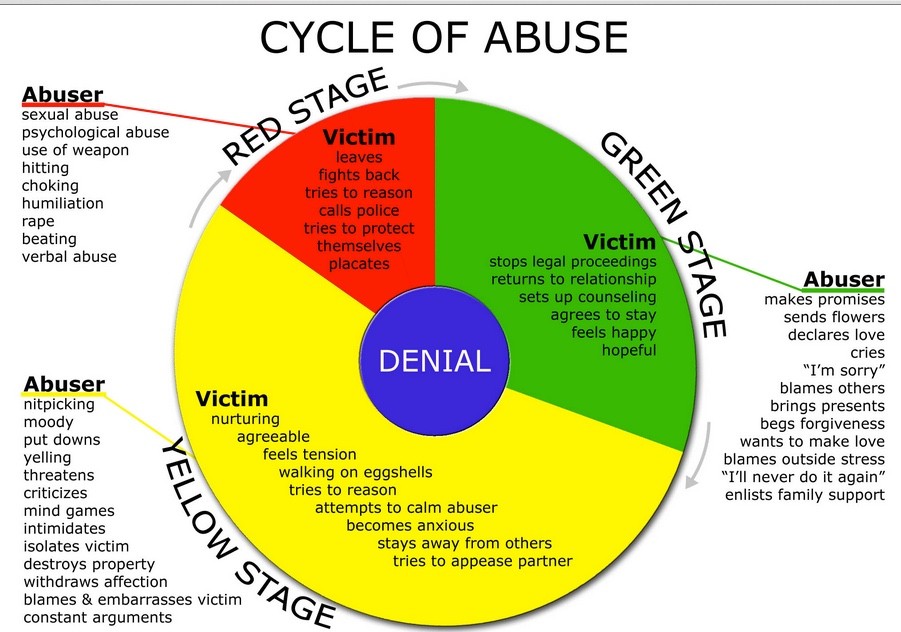 Ask several trusted individuals if you can contact them if you need a ride, a place to stay, or help contacting the police. Memorize the numbers of your emergency contacts, local shelter, and domestic violence hotline.
Ask several trusted individuals if you can contact them if you need a ride, a place to stay, or help contacting the police. Memorize the numbers of your emergency contacts, local shelter, and domestic violence hotline.
Protecting your privacy
Abusers often monitor their partner's activities, including their phone, computer, and Internet use. You may be afraid to leave or ask for help out of fear that your partner will retaliate if he finds out. However, there are precautions you can take to stay safe and keep your abuser from discovering what you're planning.
When seeking help for domestic violence and abuse, it's important to cover your tracks, especially when you're using the home phone, a smartphone, or a computer.
Call from a friend's or neighbor's phone when seeking help for domestic violence, or use a public pay phone or a “burner phone.”
Check your smartphone settings. There are smartphone apps your abuser can use to listen in on your calls, read your text messages, monitor your Internet usage, or track your location.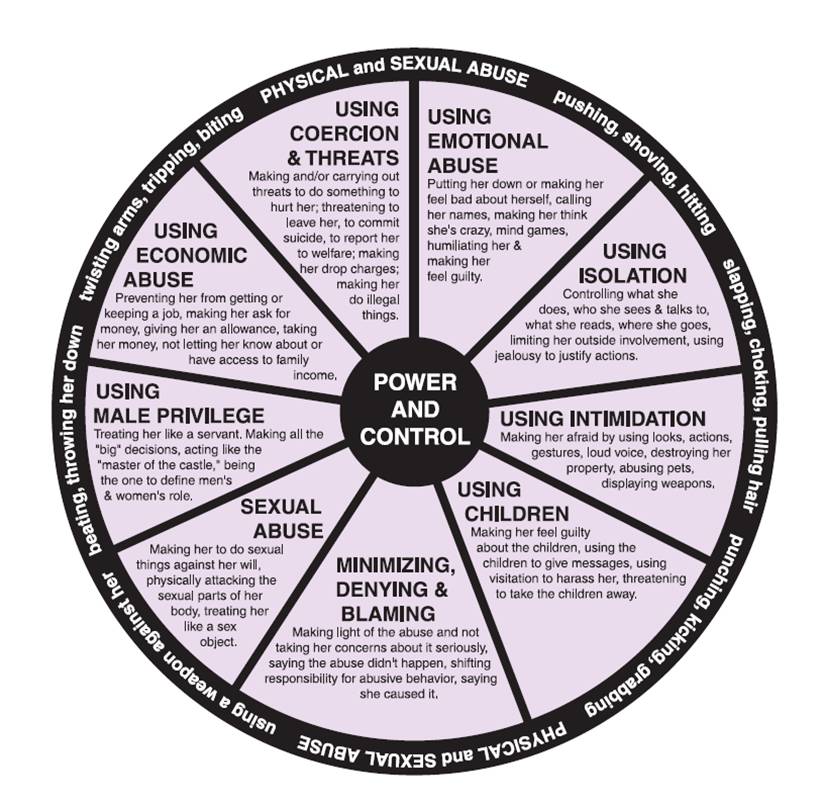 Consider turning it off when not in use or leaving it behind when fleeing your abuser.
Consider turning it off when not in use or leaving it behind when fleeing your abuser.
Get a second cell phone. To keep your communication and movements private, consider purchasing a prepaid cell phone (“burner” phone) or another smartphone that your abuser doesn't know about. Some domestic violence shelters offer free cell phones to battered women. Call your local hotline to find out more.
Call collect or use your second cell phone. Remember that if you use your own home phone, the phone numbers that you call will be listed on the monthly bill that is sent to your home. Even if you've already left by the time the bill arrives, your abuser may be able to track you down by the phone numbers you've called for help.
Use a safe computer. If you seek help online, you are safest if you use a computer outside of your home. While there are ways to delete your Internet history on a computer, tablet, or smartphone that your abuser has access to, this can be a red flag that you're trying to hide something.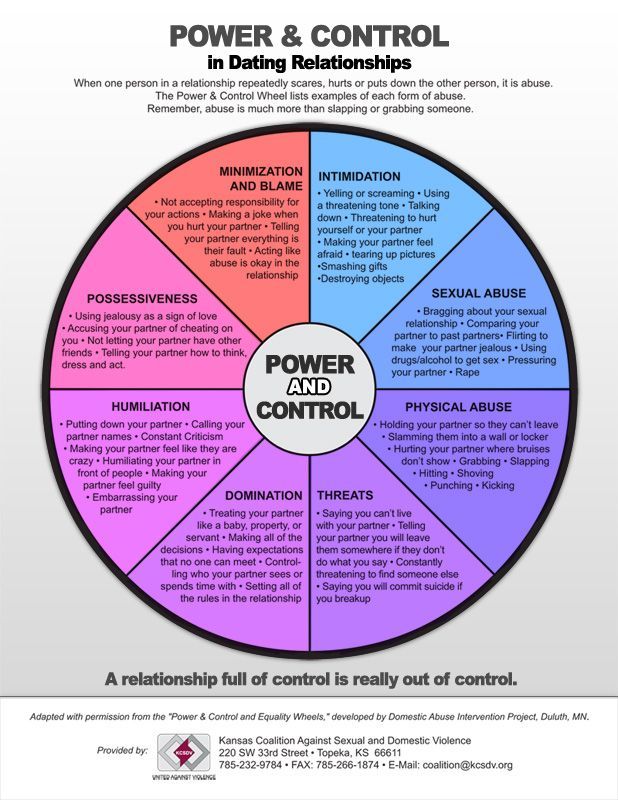 Besides, unless you're very technical, it can be almost impossible to clear all evidence of the websites that you've visited. Use a computer at work, the library, your local community center, a domestic violence shelter or agency, or borrow a smartphone from a friend.
Besides, unless you're very technical, it can be almost impossible to clear all evidence of the websites that you've visited. Use a computer at work, the library, your local community center, a domestic violence shelter or agency, or borrow a smartphone from a friend.
Change your user names and passwords. In case your abuser knows how to access your accounts, create new usernames and passwords for your email, IM, online banking, and other sensitive accounts. Even if you don't think your abuser has your passwords, he may have guessed or used a spyware or keylogging program to get them. Choose passwords that your abuser can't guess (avoid birthdays, nicknames, and other personal information).
Domestic violence shelters
A domestic violence shelter or women's shelter is a building or set of apartments where abused and battered women can go to seek refuge from their abusers. The location of the shelter is kept confidential in order to keep your abuser from finding you.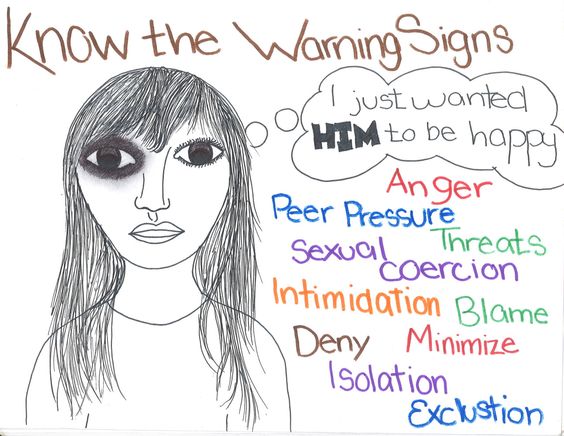
Domestic violence shelters generally have room for both mothers and their children. The shelter will provide for all your basic living needs, including food and childcare. The length of time you can stay at the shelter is limited, but most shelters will also help you find a permanent home, job, and other things you need to start a new life. The shelter should also be able to refer you to other services for abused and battered women in your community, including:
- Legal help
- Counseling
- Support groups
- Services for your children
- Employment programs
- Health-related services
- Educational opportunities
- Financial assistance
If you go to a domestic violence shelter or women's refuge, you do not have to give identifying information about yourself, even if asked. While shelters take many measures to protect the women they house, giving a false name may help keep your abuser from finding you, particularly if you live in a small town.
Protecting yourself after you've left
Keeping yourself safe from your abuser is just as important after you've left as before. To protect yourself, you may need to relocate so your former partner can't find you. If you have children, they may need to switch schools.
To keep your new location a secret:
- Get a prepaid mobile (“burner”) phone or an unlisted landline.
- Use a post office box rather than your home address.
- In the U.S., apply to your state's address confidentiality program, a service that confidentially forwards your mail to your home.
- Cancel your old bank accounts and credit cards, especially if you shared them with your abuser. When you open new accounts, be sure to use a different bank.
If you're remaining in the same area, change up your routine. Take a new route to work, avoid places where your abuser might think to locate you, change any appointments he knows about, and find new places to shop and run errands.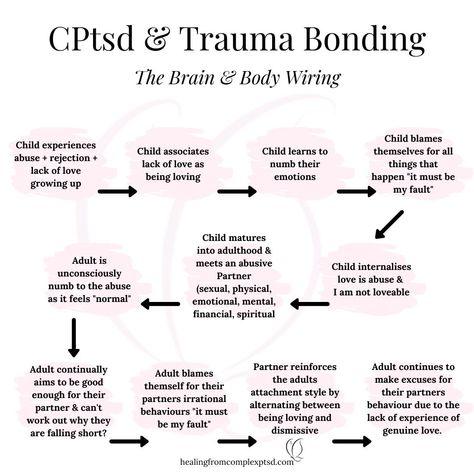 You should also keep a cell phone on you at all times and be ready to call your country's emergency services number (911 in the U.S.) if you spot your former abuser.
You should also keep a cell phone on you at all times and be ready to call your country's emergency services number (911 in the U.S.) if you spot your former abuser.
Consider getting a restraining order or protective order against your abusive partner. However, do not feel falsely secure with a restraining order. Your stalker or abuser may ignore it and the police may do nothing to enforce it.
If you are the victim of stalking or abuse, you need to carefully research how restraining orders are enforced in your neighborhood. Find out if the abuser will just be given a citation or if he will actually be taken to jail. If the police simply talk to the violator or give a citation, your abuser may reason that the police will do nothing and feel empowered to pursue you further. Or your abuser may become angry and retaliate.
ADVERTISEMENT
Taking steps to heal and move on
The scars of domestic violence and abuse run deep. The trauma of what you've been through can stay with you long after you've escaped the abusive situation. You may struggle with upsetting emotions, frightening memories, or a sense of constant danger that you just can't kick. Or you may feel numb, disconnected, and unable to trust other people. But counseling, therapy, and support groups for domestic abuse survivors can help you process what you've been through and learn how to build new and healthy relationships.
You may struggle with upsetting emotions, frightening memories, or a sense of constant danger that you just can't kick. Or you may feel numb, disconnected, and unable to trust other people. But counseling, therapy, and support groups for domestic abuse survivors can help you process what you've been through and learn how to build new and healthy relationships.
Building healthy new relationships
After getting out of an abusive situation, you may be eager to jump into a new relationship and finally get the intimacy and support you've been missing. But it's wise to go slow. Take the time to get to know yourself and to understand how you got into your previous abusive relationship. Without taking the time to heal and learn from the experience, you're at risk of falling back into abuse.
Authors: Melinda Smith, M.A. and Jeanne Segal, Ph.D.
Domestic Violence: Finding Safety & Support (PDF) – Guide for abused and battered women. (New York State Office for the Prevention of Domestic Violence)
Safety when Preparing to Leave an Abuser – Guidelines for how to safely leave an abusive relationship.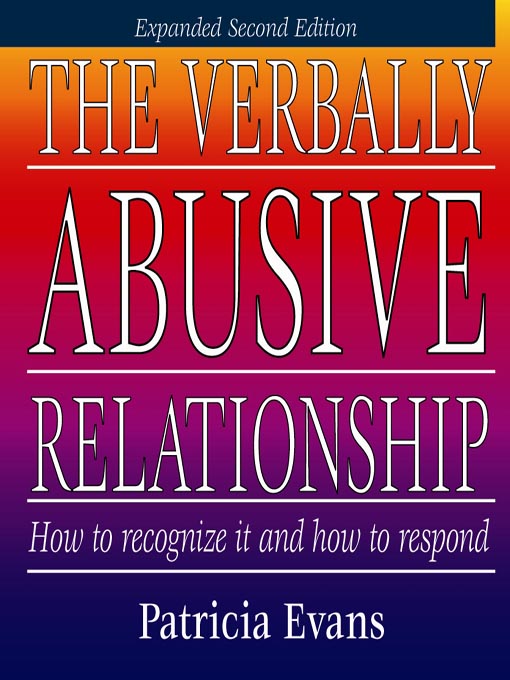 (Women's Law Initiative)
(Women's Law Initiative)
Internet Security – Gives detailed instructions on how to clear your computer's Internet browser and email account from evidence of your efforts to find help for domestic abuse. (Women's Law Initiative)
Hotlines and support
Call 911 or your country's emergency service number if you need immediate assistance or have already been hurt.
In the U.S.: call the National Domestic Violence Hotline at 1-800-799-7233 (SAFE) or search Womenslaw.org's state-by-state directory of domestic violence shelters and advocates.
UK: call Women's Aid at 0808 2000 247.
Australia: call 1800RESPECT at 1800 737 732.
Around the web
Last updated: October 17, 2022
How to Leave an Abusive Relationship and Not Go Back
No matter how many times you’ve gone back, you can safely move forward and permanently leave an abusive relationship.
Quick exit
Press the “Quick exit” button at any time if you need to quickly exit this page.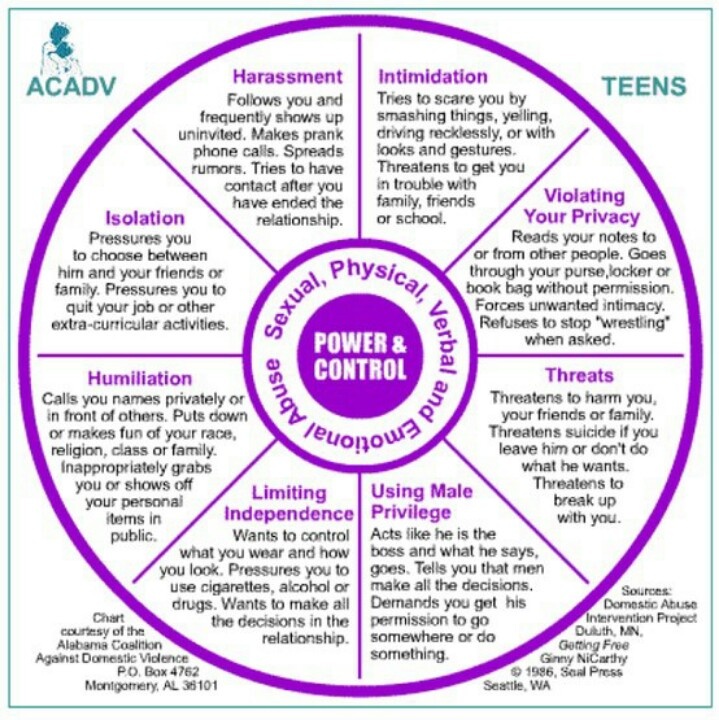 The button can be found at the end of multiple sections. You’ll be taken to Psych Central’s landing page instead.
The button can be found at the end of multiple sections. You’ll be taken to Psych Central’s landing page instead.
Alternatively, if you’re on a laptop, computer, or tablet with an external keyboard and you want to quickly close this tab, try using the following keyboard shortcuts:
- Windows or Linux: Ctrl + w or Ctrl + F4
- Mac: ⌘ + w
For more tips on safety plans and safer browsing, consider visiting the National Domestic Violence Hotline.
Quick exit
Intimate partner abuse is an extremely common health crisis that impacts people of all genders, races, and ages.
Studies suggest that 10 million people in the United States are affected by family and domestic health violence every year.
If you’ve recently been in an abusive relationship, trust that you’re not alone and it’s never your fault. You can break the cycle of abuse and leave your partner for good, but it requires extensive safety planning, support, and care.
Quick exit
“It’s not always easy to tell at the beginning of a relationship if a partner will become abusive, as possessive and controlling behaviors may emerge and intensify as a relationship grows,” says Laura’s House clinical director Theresa Black, MA, MFT, ATR.
But there are certain red flags and types of abuse to look out for. Your partner may be abusive if they:
- isolate you from friends and family
- constantly want to know where you are and what you’re doing
- assume control over your finances, plans, etc. without discussion
- rarely take responsibility or admit fault
- manipulate or gaslight you
- exhibit intense feelings and behavior, like obsession and possessiveness
- engage in physical, emotional, or sexual violence
Quick exit
According to the National Domestic Violence Hotline, it takes an average of seven attempts for a person to finally leave an abusive partner.
“Many times, leaving an abusive relationship is not only emotionally difficult but can also be life threatening,” says One Love’s CEO, Katie Hood.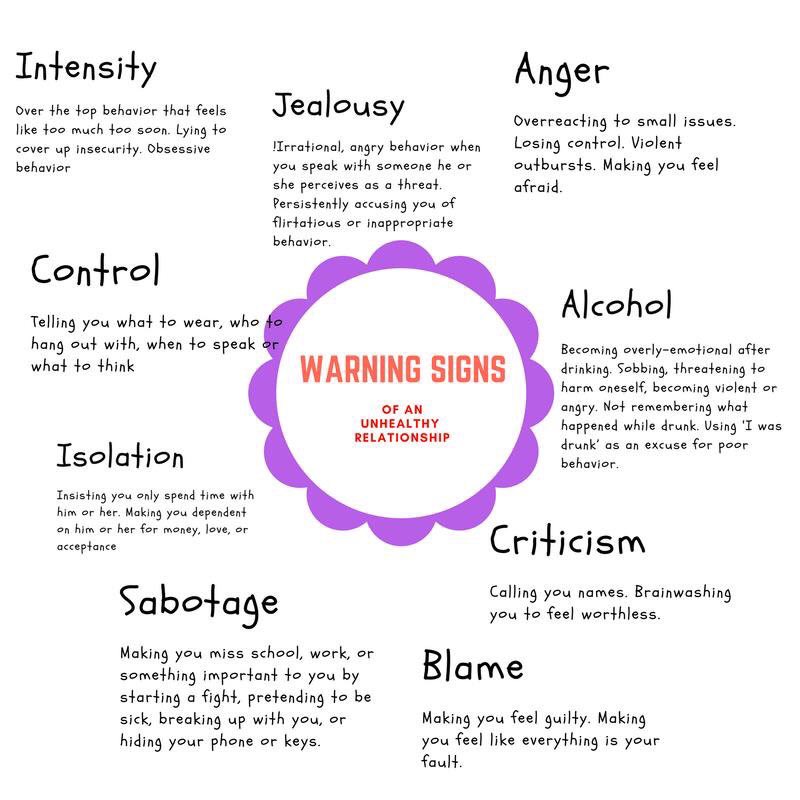
An older 2000 report by the U.S. Department of Justice indicates that threat of separation (or actual separation) can be linked with an increased risk of violence for the survivor.
Some common reasons for staying in an abusive relationship include the following:
- You feel a sense of bonding with your partner through trauma.
- Your partner won’t let you leave (e.g. they’re controlling or threatening).
- You have safety concerns.
- You have nowhere to go.
- You lack finances or independence (e.g. shared bank accounts or no job).
- You lack knowledge around how to leave.
- You lack support.
- You have feelings of fear, shame, or embarrassment.
- You want to keep your family together for the sake of your children.
- You worry about how your partner may feel or react.
Quick exit
If you’re unsure of how to leave an abusive relationship or worried that you may go back, here are some tips that could help.
Create a safety plan
Establishing safety is important. A safety plan can help you outline actionable steps to reduce risk of harm or danger during the breakup process. A safety plan may include:
- a person to contact for help or shelter
- important items to bring when leaving
- steps to protect children and pets
- steps to increase safety at work, school, church, and stores
- steps to navigate different potential scenarios with the partner
Hood notes that certain factors can make some abusive relationships more dangerous than others. “Every relationship and every situation is unique, as is every breakup, so it’s important to create a plan to end the relationship safely.”
If you need help getting out of an abusive relationship, Black recommends reaching out to your local domestic violence hotline and making a safety plan with an advocate.
“You have options, and there are several steps you can take to protect yourself (or a loved one) on your path to long-term safety,” she adds.
Quick exit
Build a safety network
“To avoid going back to an abusive relationship, surround yourself with a support network of friends and loved ones who are in the loop on why you left,” says Hood.
She also suggests reconnecting with loved ones, friends, and people in your community, especially if you’ve been isolated from them during your relationship.
Remember why you left
“It’s perfectly normal to miss an abusive partner, but that doesn’t mean that it’s right to be with them,” says Hood. “Rather, it means that there was some good in the relationship, but the bad outweighs the good because everyone deserves a healthy, safe, empowering and joyful relationship.”
She recommends writing yourself a note about why you chose to leave the relationship and why you feel it’s important to not go back. Whenever you start to miss them, look back at it as a friendly reminder of why the relationship is unhealthy and reconnection isn’t the best (or safest) idea.
Quick exit
Put yourself first
It’s common to think about how your partner might feel if/when you leave, especially if they’re emotionally abusive. But your feelings matter, too, and it’s important to prioritize your own well-being.
“Remember that leaving an unhealthy relationship is not ‘quitting.’ Rather, it’s a positive decision of choosing a healthier life,” adds Hood. “Bravo for making a hard, but right, choice for yourself.”
“It’s important you focus on your own growth and processing,” says Black, who recommends practicing self-care during this time. “Give yourself kindness and time to heal.”
Trust your gut
Hood reminds you to always trust your gut, because “if something feels off about your relationship or dating situation, it probably is.”
After all, you know your situation better than anyone else. Listen to your intuition and trust your own judgment on the safest time to leave. “You have the strength to leave, but only when you’re ready,” adds Black.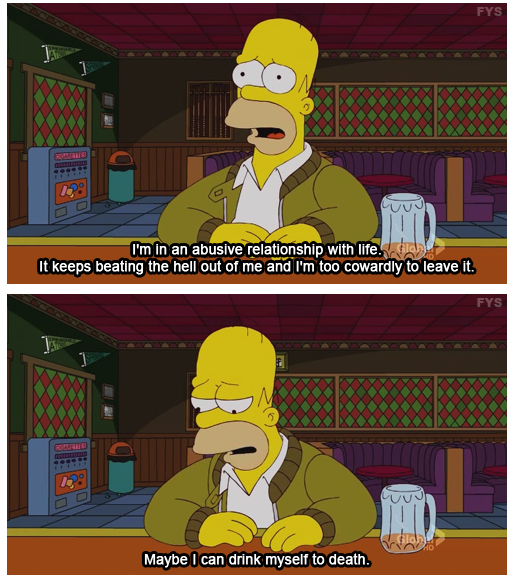
Quick exit
Work toward becoming independent
Research is limited, but the Centers for Disease Control and Prevention (CDC) suggests that increased financial and housing security can reduce risk of intimate partner violence.
Especially if you used to rely on your partner for shelter and finances, finding a safe space to live and a job can jumpstart your path to independence. “Establish financial independence, including your own source of income, savings, and credit,” says Hood.
This may improve your chances of staying away from your partner.
Quick exit
Several resources are available to support you when leaving an abusive relationship.
Hotlines
“Reach out to your local domestic violence hotline, the National Domestic Violence Hotline, or [call] 211 to get connected to more information about domestic violence as well as gaining assistance in creating a safety plan,” says Black.
She also recommends asking hotline advocates about:
- case management
- therapy
- legal advocacy
- other helpful resources
“Case management services can provide you with resources to help you gain independence, such as housing, employment, financial literacy, etc.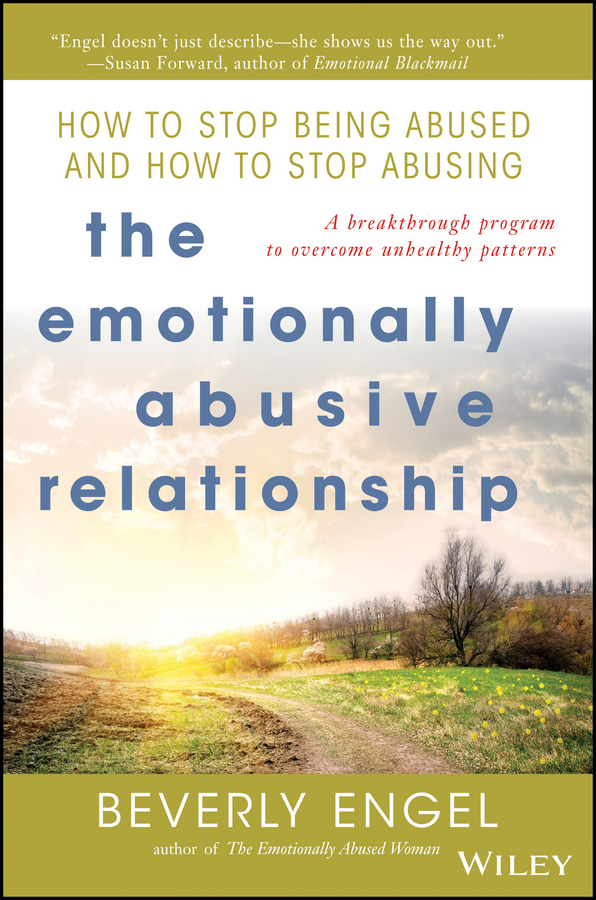 ,” Black adds.
,” Black adds.
Quick exit
Support groups and organizations
Getting involved in support groups, joining organizations, and connecting with other survivors can offer you comfort and support during this time.
“Many people who find and become involved in One Love because of an unhealthy or abusive relationship report a sense of relief in seeing their situations depicted in our content, strength in educating others, or support in joining our community of volunteers, student leaders, educators, advocates, and staff,” says Hood.
Laura’s House also provides shelter, support services, and non-residential direct services to people affected by abuse in the Southern California area. You can visit www.laurashouse.org or call 866-498-1511 to learn more.
“Legal advocates can also provide education and support in terms of restraining orders and possibly provide legal referrals,” adds Black.
Quick exit
Therapy
Keep in mind that couples counseling doesn’t work in abusive relationships.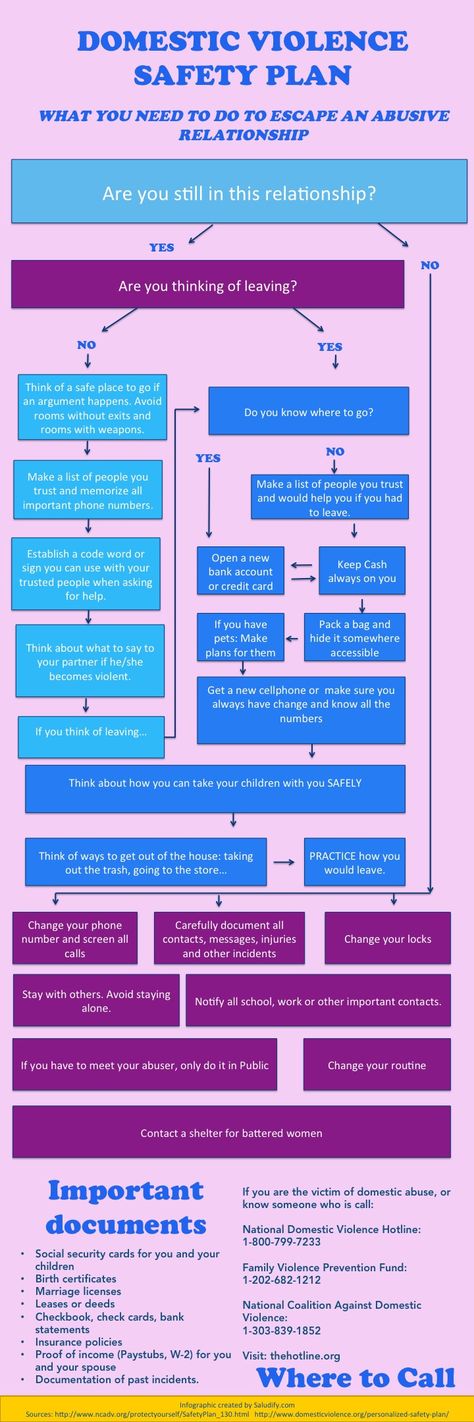 But individual therapy can help you strengthen your relationships, set boundaries, and better understand the dynamics of domestic violence, says Black.
But individual therapy can help you strengthen your relationships, set boundaries, and better understand the dynamics of domestic violence, says Black.
A mental health professional can also teach you coping strategies and tips for building healthier relationships.
“It’s important to educate yourself about the common patterns of abuse and the types of abusive behaviors you may have experienced in order to break the cycle of violence,” she says. “Knowledge is power.”
Quick exit
It’s possible for you to leave an abusive relationship for good. Every situation requires different planning, but creating a safety plan, establishing a support network, prioritizing self-care, and becoming independent can help.
“No one ever deserves to experience abuse, and there are many resources available that can help you heal,” reminds Black. Joining support groups, getting involved in organizations, leaning on your loved ones, and starting therapy are great places to start.
“You’re never alone, and your relationship is not a reflection of who you are, your strength, or your worth,” adds Hood.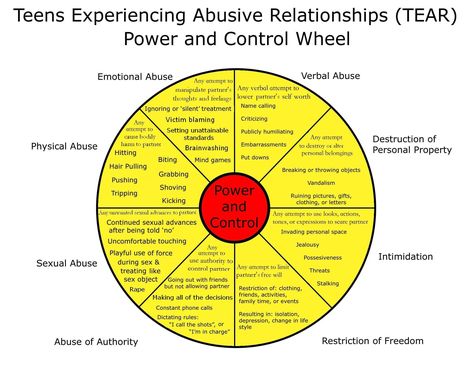
Remember that you’re worthy and deserving of a love that feels good. You can build happier, healthier relationships if and when you’re ready. In the meantime, focus on your safety and well-being.
Quick exit
How to get out of an abusive relationship. Walkthrough / Sofa of Love
If you feel like you're stuck in a terrible relationship that makes you feel abused, this is how to get out of an abusive relationship safely.
Being in an abusive relationship can be confusing. First, there is not only one type of abuse that can take place. Second, some people don't even realize they're in an abusive relationship until it's too late. If you need to know how to get out of an abusive relationship, we are here to help.
Getting out of an abusive relationship is sometimes harder because you don't really want to leave. You can also be so deeply with someone that you have family together. And that only adds to the difficulty of getting out of an abusive relationship.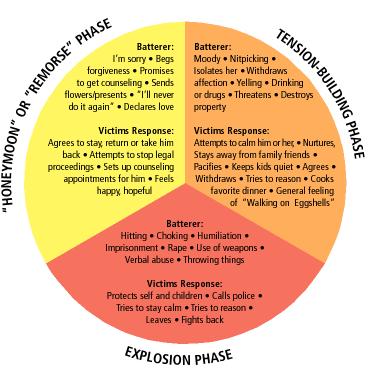
What are the different types of abusive relationships?
For those of you who believe that only physically abusive relationships exist, you are not alone. Many people think it's an abusive relationship only if there is physical evidence that someone is hurting you. While this is definitely a type of abuse, it is not the only kind.
You may also experience emotional and mental abuse. Maybe someone isn't physically harming you, but they threaten you to the point where you feel as if they were. You may also have a partner who uses violence and uses insults and insults.
How to get out of an abusive relationship
No matter what situation describes what you're going through, you need to get out. No one is worth jeopardizing your mental and physical health. If they really loved you from the start, they wouldn't have treated you so badly.
However, this is often easier said than done. That's why we've compiled a list of the steps you need to take to get out of an abusive relationship.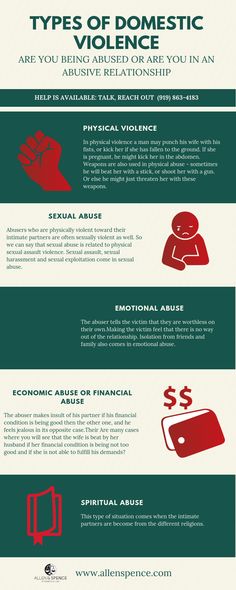 Don't let your abusive relationship destroy you. Please leave before it's too late.
Don't let your abusive relationship destroy you. Please leave before it's too late.
#1 Understand that you are in fact in an abusive relationship. Many people in abusive relationships are in complete denial. You must first understand that your relationship is unhealthy before trying to get out of it.
Pay attention to the warning signs and ask others if they think this is also an abusive relationship. Typically, your friends and family have already mentioned something about unhealthy behavior in your relationship.
#2 Go to your support system. Go to those friends and family and talk to them about your situation. They were most likely waiting for that day so they could help you out of something terrible.
Your support system helps you throughout the process. Their main purpose is to ensure that you never go back to stay there. They can be present whenever you need them, and they should always help you out of this abusive relationship.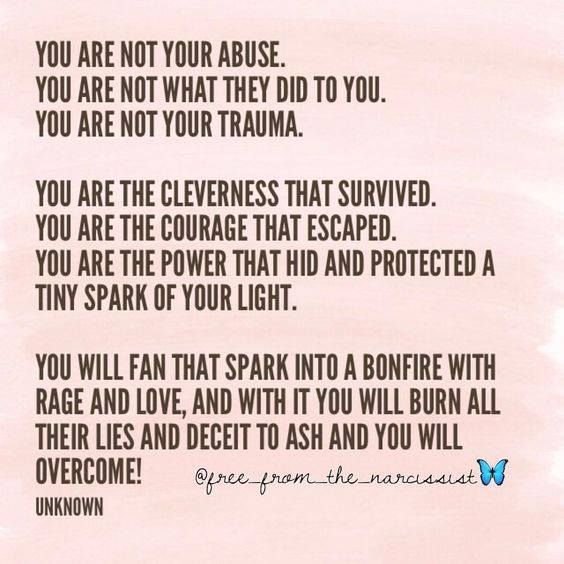
No. 3: shut up. Most of the time, voicing the fact that you are about to leave only puts your loved ones on edge and irritates them, leading to more violence.
If you are planning to leave and are trying to get your affairs in order so that you can leave peacefully, keep your decision confidential. Don't announce it. Don't talk about this with anyone other than your support system. This gives the angry partner nothing to be angry about and allows you to leave without a fuss.
#4 Avoid offensive situations. If you are trying to break off a relationship, it is best to regain confidence and strength.
You may just need to avoid them altogether to avoid this. It's fine. However, do not arouse any suspicion in them, because this only makes the situation worse. Just keep your distance so they stay smooth.
#5 Is there somewhere you can go. Make a plan of where you will go when you leave them. It could be a friend's house, your parents' place, or even a new apartment if you get together before you leave.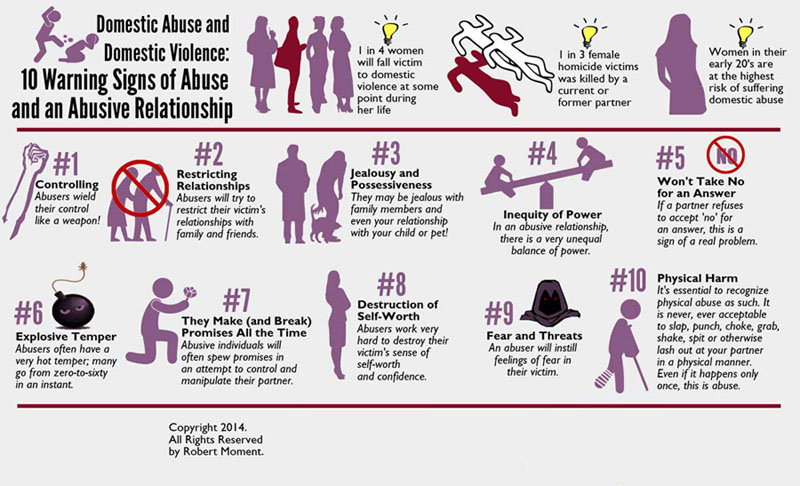
The thing is, you want to have a safe place to stay away from them. It won't go well when they know you're leaving, so make sure you have a place where they can't disturb you.
# 6 Collect all important documents. If you live together, you probably have all your tax documents and ID in a common place. You can't just walk out and then politely ask them. Your ex-partner who is abusing you won't want to just give them nicely.
Be sure to collect all of these forms and cards before you leave without making them suspicious. Get them out and send them to a friend where they can be safely stored until you are completely out of the relationship and away from them.
#7 Have someone with you when you actually leave. If you live with them and need to move your stuff, you'll want someone to be with you because being alone isn't going to be a fun situation. They will be angry and resentful, two things that cause some people to act offensively.
Ask a few different friends or family members to be with you so they don't even have a chance to try to get you to stay and so you can quickly get everything out of there.
#8 Remind yourself why you are leaving. If you are in an abusive relationship, it may be difficult for you to maintain your opinion of yourself. You've been insulted for so long that you fall back into their charm and forget to leave.
Constantly remind yourself why you're leaving and why you can't be together. Put yourself above everything when you are in an abusive relationship. This may help you see clearly.
# 9 Call the police if necessary. Some people cannot hope to get out of an abusive relationship if it is serious enough to justify police involvement. If you don't feel safe and are scared to even try to leave, the police can escort you.
Law enforcement in your area will come to your rescue and just stand by while you move and leave your belongings.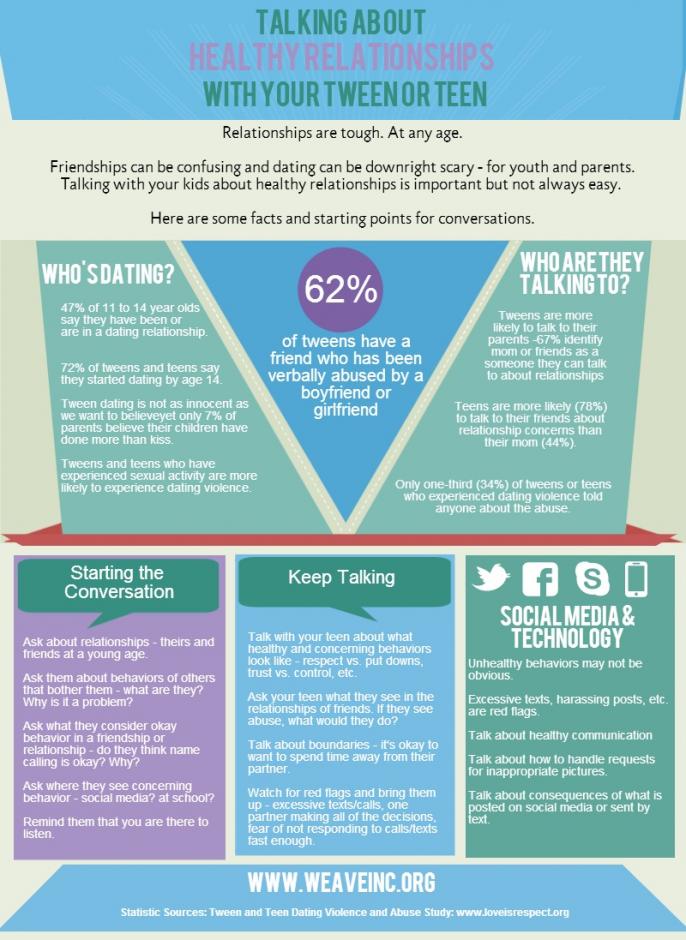 They protect and help you in any situation of violence if she is so extreme that she needs it.
They protect and help you in any situation of violence if she is so extreme that she needs it.
# 10 cut them out of your life COMPLETELY. Now that you are out of a relationship, you must remove it from every other aspect of your life. FULLY get rid of them and everything connected with them. Otherwise, the violence continues even without them.
Get rid of all their stuff, delete and block their number, unfriend them on social media and prevent them from contacting you. This helps you overcome them and see clearly, and prevents them from being abused further.
Figuring out how to get out of an abusive relationship can be tricky. But with these steps and tips, you will be able to get out of there and realize that you are worth a lot more than what your partner has given you.
How to get out of an abusive relationship. Psychologist's advice
Photo by Eric Ward on Unsplash
The term "abuser" has already become quite trendy.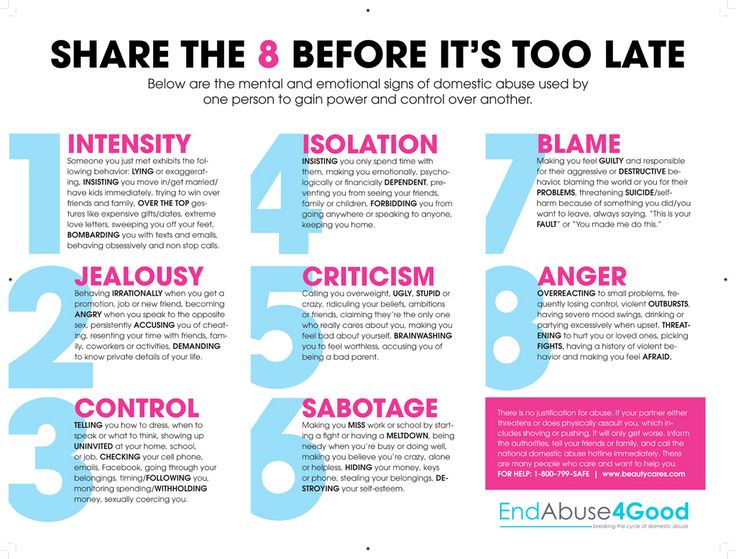 Humorous videos are often made about this type of behavior and psychologists do not ignore it. And this happens for a reason. According to experts, the topic of abusive relationships is very serious and complex. "Moments" together with a psychologist figured out why such relationships arise between two people in love and how to distinguish them from healthy ones.
Humorous videos are often made about this type of behavior and psychologists do not ignore it. And this happens for a reason. According to experts, the topic of abusive relationships is very serious and complex. "Moments" together with a psychologist figured out why such relationships arise between two people in love and how to distinguish them from healthy ones.
- Abusive relationships - relationships in which a partner violates the personal boundaries of another person, humiliates, allows cruelty in communication and actions in order to suppress the will of the victim. Both men and women can be abusers,” psychologist Daria Karamysheva told Moments.
According to her, there are several types of abuse that can be combined in a relationship. The first is psychological. It includes threats, humiliation and insults from the aggressor.
Photo by Victoria Volkova on Unsplash
- The partner is told that he is stupid, incapable of anything and not needed by anyone, and the environment only harms the development of their relationship.The victim begins to think that this is really so and narrows the circle of his communication, the psychologist told Moments.
The second type of abuse is physical. It is characterized by the constant use of brute force, which, according to the partner, is done for the purpose of "education". There is also a third type - economic, when the aggressor puts his soulmate in complete financial dependence on him. After that, he begins to control all the money and expenses in the pair.
Abusive relationships follow a special cycle. Initially, the partners go through the stage of idealization, when the abuser exalts the victim and actively cares for her, and their relationship develops rapidly. Next comes tension. Any external stress: domestic issues, work make the aggressor angry. He ignores his partner, gets offended and blames.
Photo by Nik Shuliahin on Unsplash
After the nerves are heated to the limit, comes the stage of violence.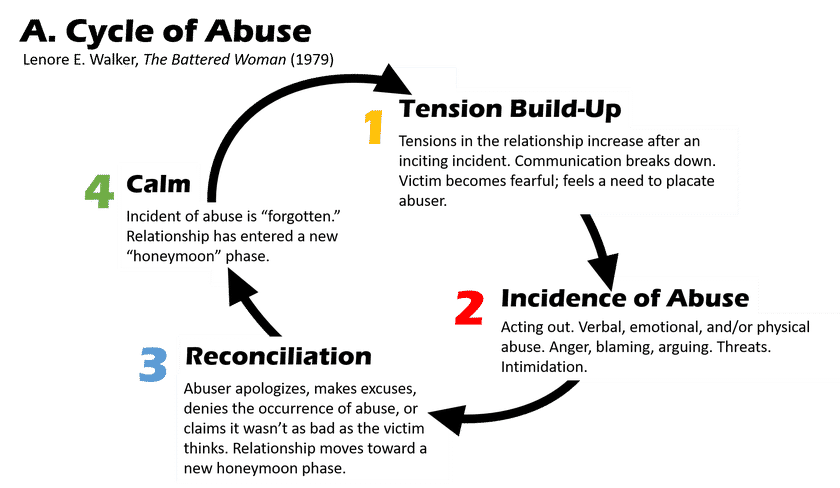 All the accumulated tension of the abuser becomes a reason for using force against the victim. Only later, when all the energy is thrown out and all the words have been said, reconciliation begins. The offender tries to regain the trust of the victim: he cares, asks for forgiveness, promises to improve.
All the accumulated tension of the abuser becomes a reason for using force against the victim. Only later, when all the energy is thrown out and all the words have been said, reconciliation begins. The offender tries to regain the trust of the victim: he cares, asks for forgiveness, promises to improve.
In the event that his other half goes to reconciliation, they reach the stage of "calm". Their relationship briefly improves, calm returns. And the partner has a hope that the experienced violence is a thing of the past. However, everything continues in a circle, and the "idealization" gradually becomes only shorter.
How do you know if you are in an abusive relationship?
Photo by Andrik Langfield on Unsplash
Excessive jealousy and control
- Control over correspondence, over who you communicate with, a ban on communication with the opposite sex, constant suspicions and accusations of flirting, requests to account for the money spent, - said psychologist Daria Karamysheva.
Aggressive, threatening and abusive behavior
It can manifest itself both to other people, for example, service personnel and subordinates, and to a partner.
Trespassing
Ignoring and violating your personal space physically, intellectually, emotionally and financially. Of course, it is impossible to see such boundaries, but everyone can recognize and feel them.
Presence of restrictions
The abuser may forbid meeting with girlfriends, friends, relatives. He demands to return from work at the same time and report on where and with whom you are, ask for confirmation with photographs.
- If you agree to what you do not want, the relationship brings fear and suffering. You “walk on tiptoe” in front of your partner, you are afraid to offend, upset or anger him, you constantly ask for leave or make excuses - this is a call that something is wrong in your relationship, the specialist added.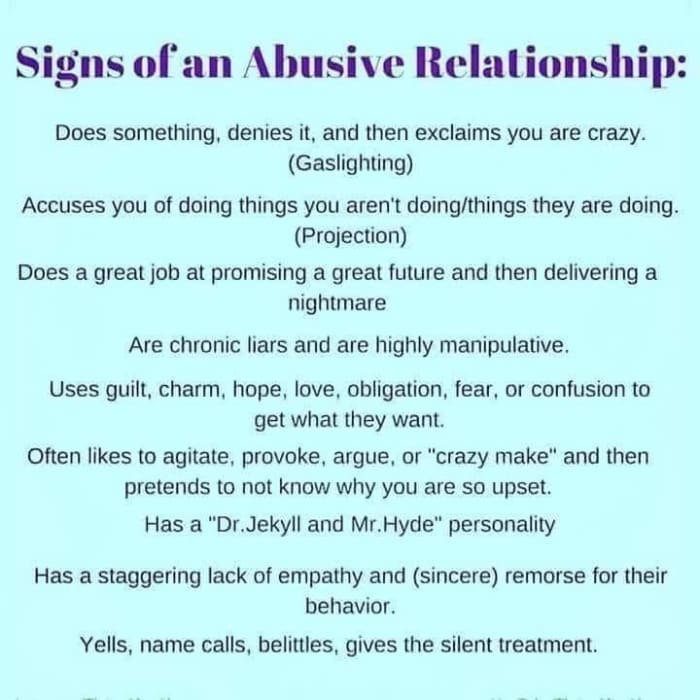
How to get out of an abusive relationship?
Photo by Anthony Tran on Unsplash
According to the psychologist, ending a relationship with an aggressor is not always easy. This can be hindered by deep-seated attitudes that have been instilled since childhood: “beats, it means he loves”, “everyone lives like that”, “do not wash dirty linen in public”.
— Dependence and fear also do not allow getting out of such relationships. The abuser subjugates the victim, instills in her that she cannot cope without him. Plus, the victim is under severe threats to life and health. In addition, the partner gets used to the cyclical nature of abuse and becomes dependent on it,” said Daria Karamysheva.
She stressed that the first and most important step is to accept that there is abuse. Next, you need to stop believing your partner so that he does not promise and does not speak.
Photo by Cody Black on Unsplash
- If the situation does not threaten life and health "here and now", when immediate care is the only possible and correct solution, then you need to prepare in advance for this step: save money, understand how long and where you will live after leaving, how and when you will move, prepare for changes in your usual life, the expert recommended.
According to her, the most important thing is not to communicate or meet with the abuser after the breakup. Also, you do not need to sort things out with him, otherwise the psychological dependence will never be overcome. The requests of the former partner to talk should only be answered with a firm refusal.
- Talking will not change anything, there is no need to get into a position. Just create all the conditions for leaving and leave silently. If the abuser is stalking you, contact law enforcement agencies, make a screen of correspondence with threats, audio recordings.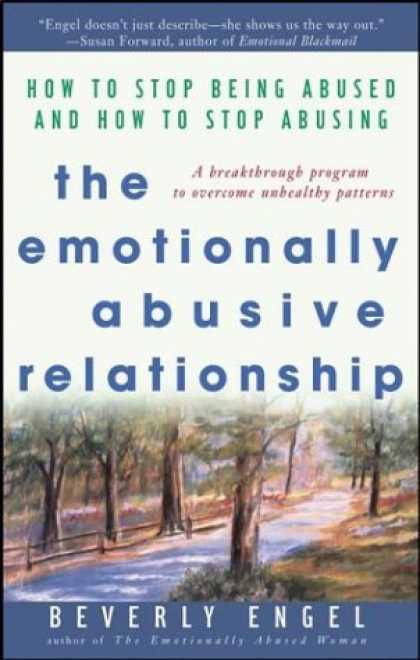
Learn more
